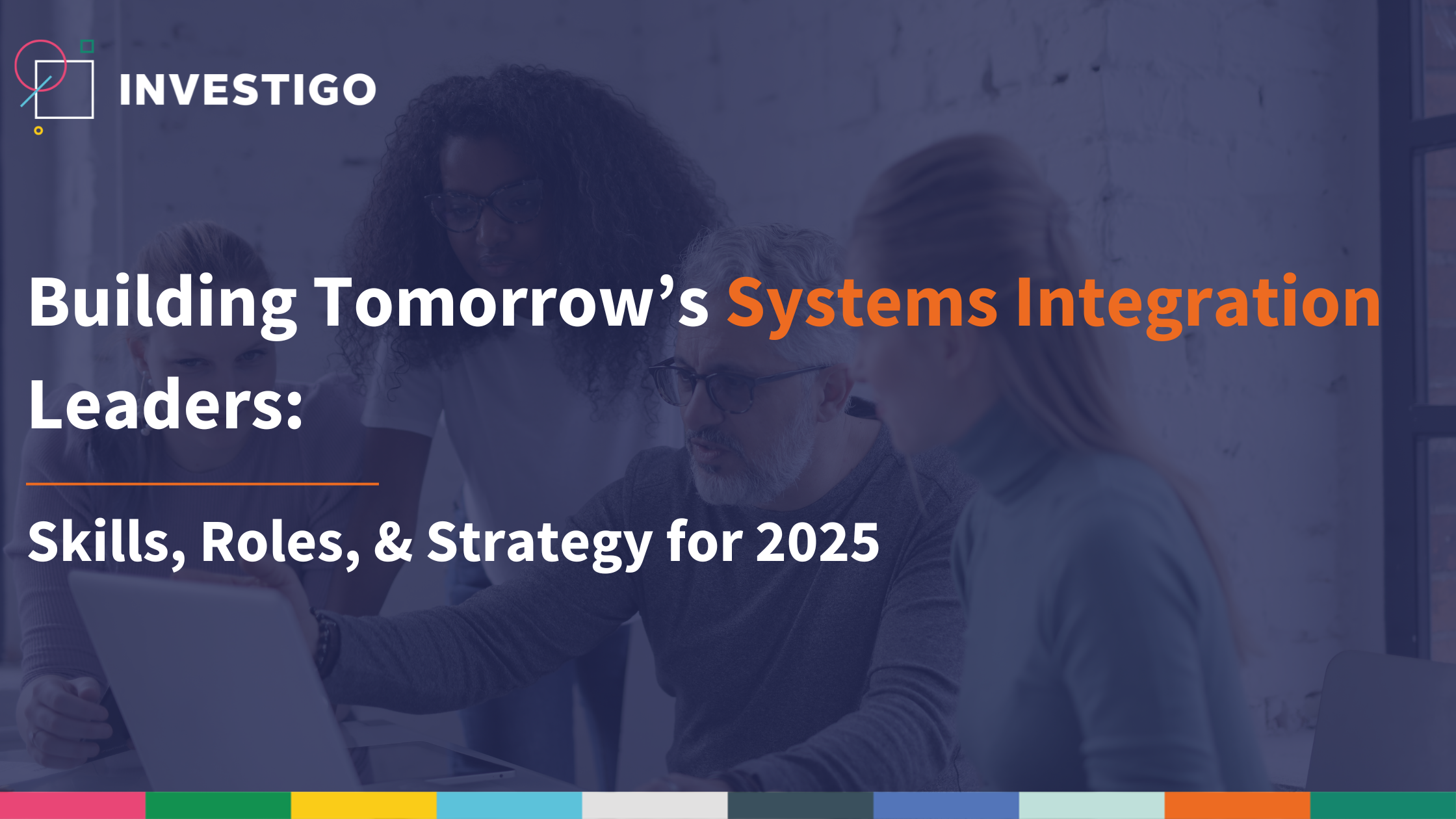
Building Tomorrow's Systems Integration Leaders: Skills, Roles, & Strategy for 2025
In the rapidly evolving world of enterprise technology, the boundaries between systems implementation and strategic business transformation are blurring. As we enter 2025, organisations are discovering that their technological infrastructure is no longer just a support function, but a critical driver of competitive advantage.
"What we're witnessing is a fundamental reimagining of how businesses approach their core systems," explains Richard Brook, Director of Investigo's ERP, CRM & HR Systems Practice. "It's no longer about implementing a piece of software, but about creating an integrated technological ecosystem that can adapt, learn, and drive business performance along with long term profitability.”
The Changing Landscape of Systems Integration
With the end of life looming in 2027 for SAP ECC6, the need for existing SAP customers to upgrade to S/4 HANA is more critical than ever. Whilst we expected a number of customers to push ahead with programmes in 2024, this didn’t materialise. Ultimately 2025 has to be the year where customers make a decision on their future landscapes, bearing in mind that an average SAP implementation/upgrade takes 18-24 months.
Richard observes that the most successful organisations are those that view their ERP, CRM, and HR systems as strategic assets rather than mere operational tools. "Traditionally, these systems were seen as back-office technologies. Now, they're the nervous system of a modern, agile business," he explains.
Skills Beyond Technology
While technical expertise remains crucial, the market is increasingly valuing professionals with broader strategic capabilities. Data governance, AI integration, and the ability to design cross-platform technological ecosystems are becoming as important as traditional technical skills.
The need for ERP professionals to have both technical and functional expertise is greater than ever, particularly when most S/4 HANA implementations are understanding the need for data, change, training and communications to be factored in from the very beginning.
Navigating the Talent Market
The talent market for ERP professionals is experiencing significant shifts. Contract day rates for top professionals have increased considerably since COVID, reflecting the strategic importance of these roles. ERP Programme Directors are now commanding rates ranging between £1,000 to £1,500 per day upwards, while Project Managers are also seeing rates upwards of £1,000 per day.
"But it's not just about compensation," Richard emphasises "The most talented professionals are looking for organisations that offer continuous learning, meaningful challenges, and the opportunity to be at the forefront of technological innovation."
Looking Forward
As we move deeper into 2025, the lines between technology implementation and business strategy will continue to blur. Organisations that view their technological infrastructure as a dynamic, strategic asset - rather than a static set of tools - will be the ones that truly thrive.
"We're not just implementing systems," Richard concludes. "We're building the technological foundations that will define how businesses compete and succeed in the coming decade."
“With increasing levels of Private Equity backed technology programmes and divestments on the horizon, the need for a successful finance transformation programme underpinned by cutting edge technology is greater than ever.”
To speak to a member of our ERP, CRM, & HR Systems team,


